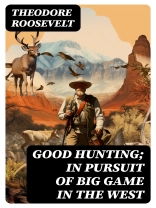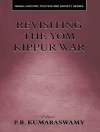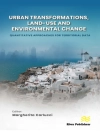In ‘Good Hunting: In Pursuit of Big Game in the West, ‘ Theodore Roosevelt intricately chronicles his adventurous exploits in the American wilderness during the late 19th and early 20th centuries. This vivid narrative is imbued with a distinctive blend of adventure and introspection, capturing the thrill of the hunt while contemplating the broader themes of nature conservation and the American spirit. Roosevelt’s literary style reflects both an engaging storytelling prowess and a ...
Tentang Penulis
Theodore Roosevelt (1858–1919), the 26th President of the United States (1901–1909), was not only a statesman and a leader but also an influential author, environmen...
Beli ebook ini dan dapatkan 1 lagi GRATIS!
Bahasa Inggris ● Format EPUB ● Halaman 85 ● ISBN 8596547724384 ● Ukuran file 13.6 MB ● Penerbit DigiCat ● Kota Prague ● Negara CZ ● Diterbitkan 2023 ● Diunduh 24 bulan ● Mata uang EUR ● ID 9235010 ● Perlindungan salinan DRM sosial












